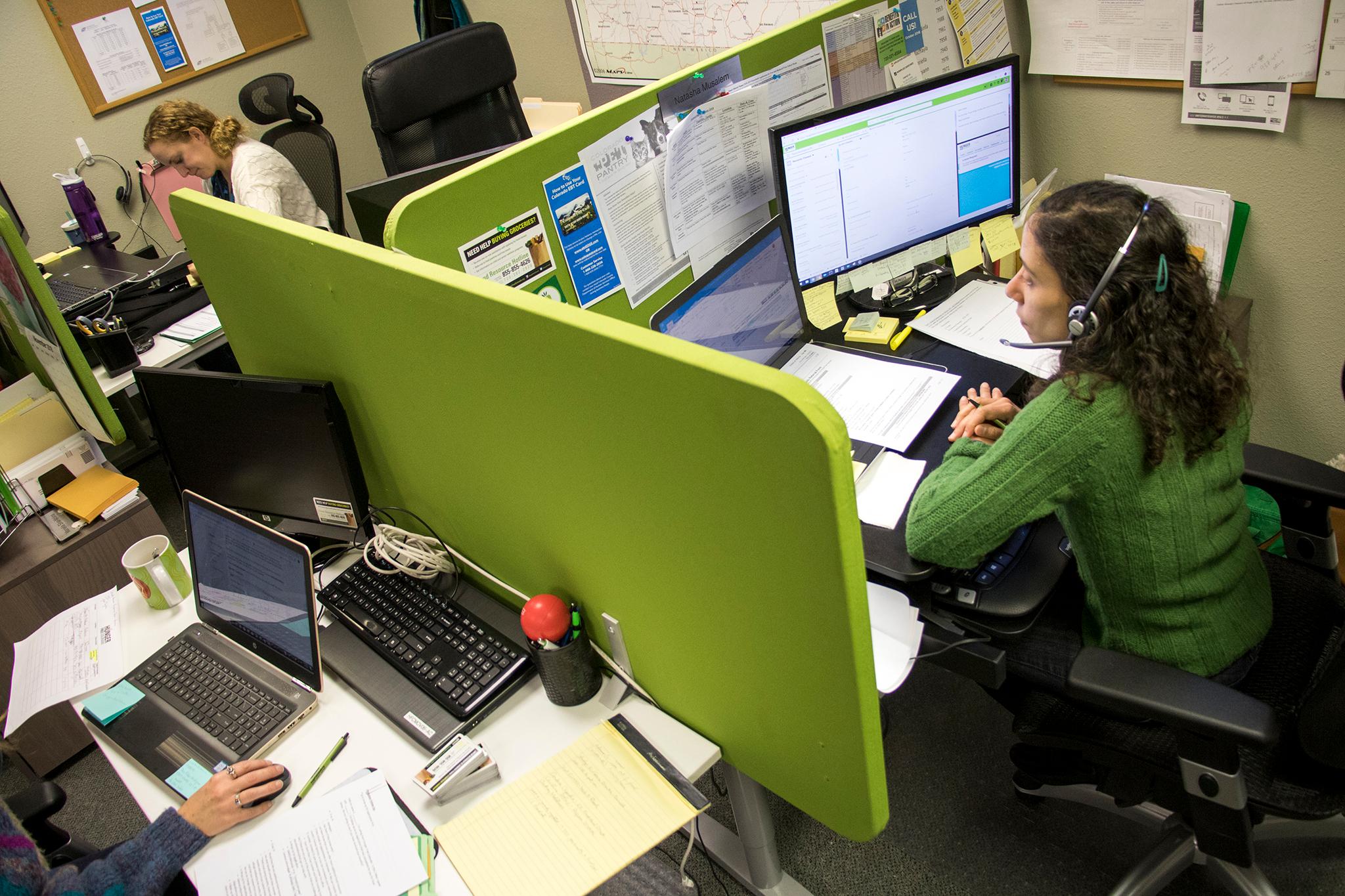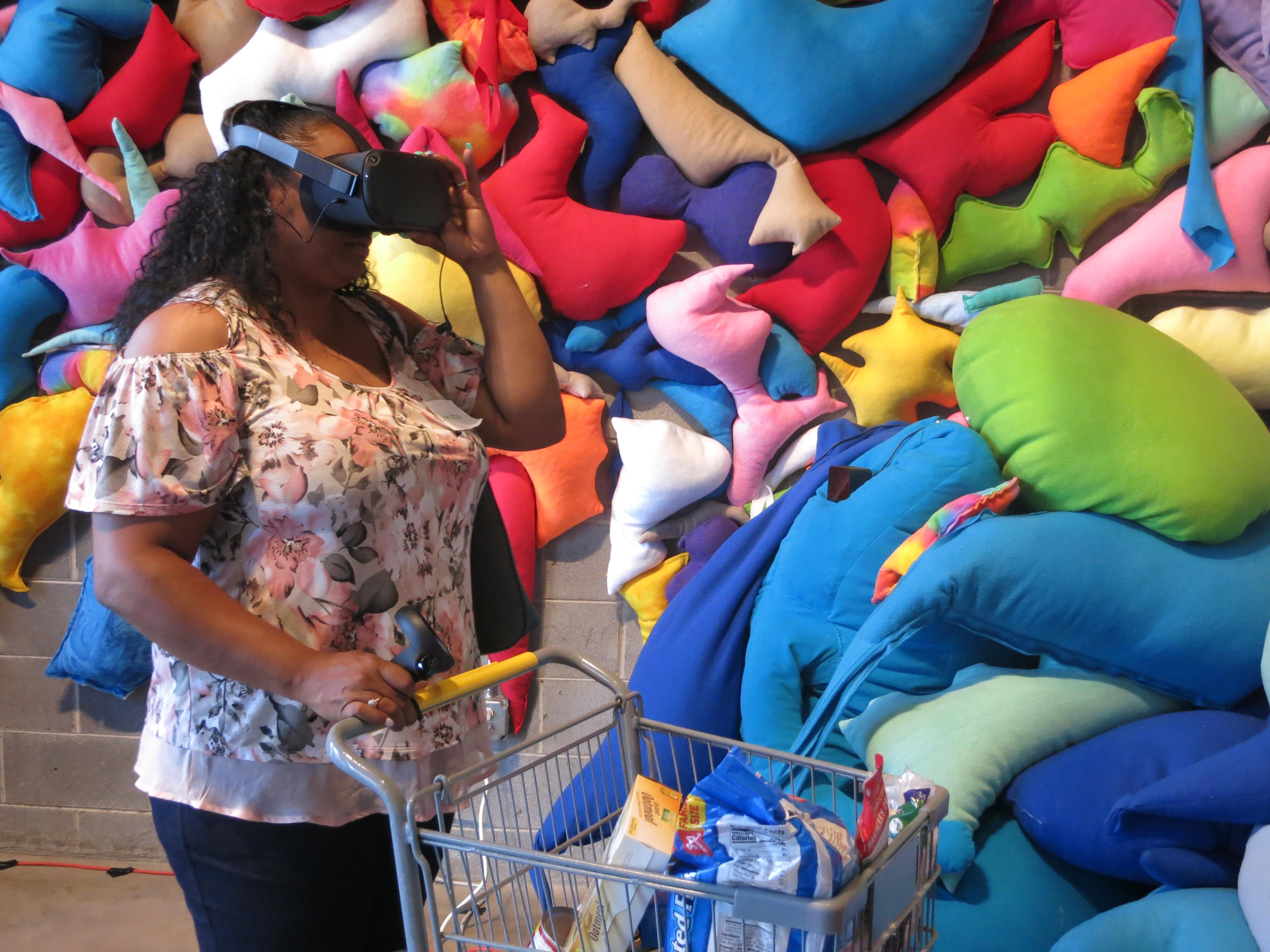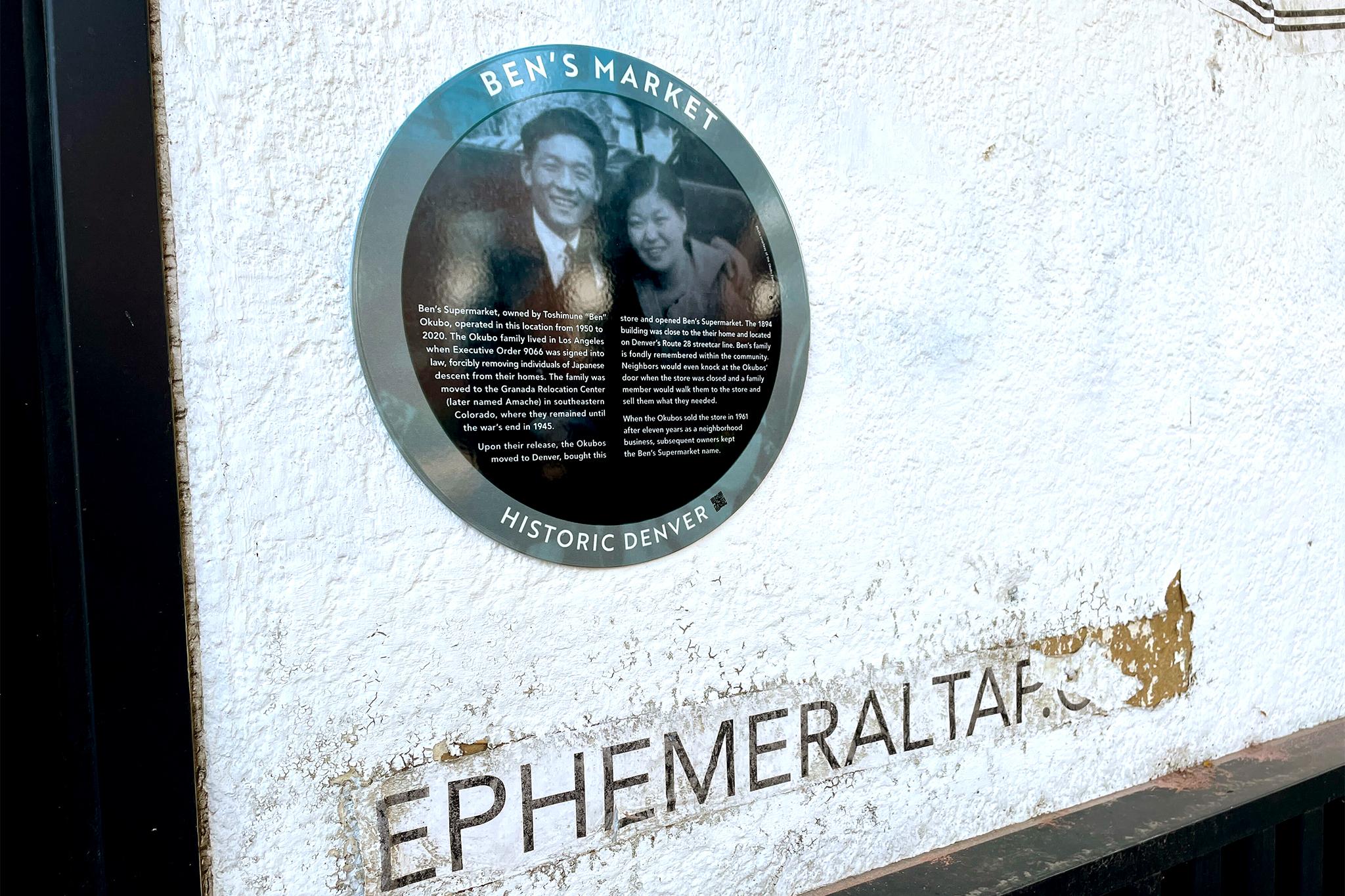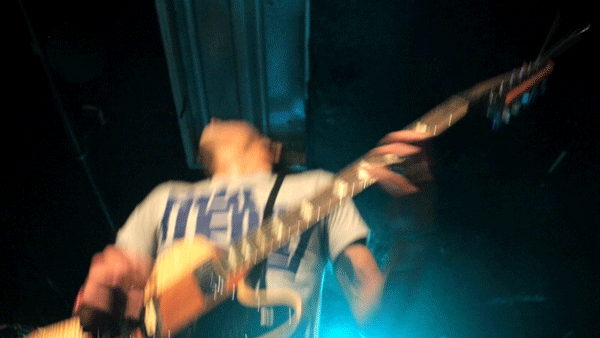Settle the virtual reality goggles over your eyes and step from a gallery into a grocery store, where you can eavesdrop on a young mother's thoughts as she agonizes over whether her family has enough cash and SNAP points to get through the week.
Hunger Free Colorado, which lobbies on food policy issues and connects families to SNAP government food benefits and other aid, hopes you'll return from virtual to actual reality with a better understanding of the challenges some in our state face. The virtual reality grocery store experience is part of Hunger Through My Lens, a 25-day exhibition Hunger Free Colorado will bring to the McNichols Civic Center Building on Oct. 1.
"I think it will have an impact," Christine Alford, executive director of Denver Food Rescue, said after taking a turn behind the goggles at RedLine, which hosted a preview of Hunger Through My Lens.
The show includes photographs that have been exhibited previously, taken by people with whom Hunger Free Colorado has worked. The group asked the amateur photographers to illustrate what hunger has meant in their lives. Among their images is a folder stuffed with documents in the foreground and baby pictures in the background with the caption: "Stacks of assistance and job applications framed by my motivators." Another shows a baby bottle filled with water next to an empty can that once held formula, with the caption: "Just a few more days until pay day."
Marc Jacobson, Hunger Free's CEO, said the photographs are compelling, but the VR experience could bring people to the McNichols gallery who might not come to see photographs.
"Our hope is to find new and creative ways to grab people's attention," Jacobson said.
The McNichols show will also include a video of conversations with Denverites about their experiences of hunger. M'Lissa Baker, who manages the Hunger Through My Lens project, said she hopes the video conveys an intimate experience of asking someone why they are hungry.
"It's such a hard question," Baker said. "But I think it's an important question. It's the only way to begin conversations, by asking the hard questions."

While the photographs and video emerge from individual experiences, the VR part of the show features an actress portraying a story that combines experiences of people with whom Hunger Free Colorado has worked. The VR script also was vetted by people who have relied on SNAP, also known as food stamps.
Jacobson, the nonprofit's CEO, said he hoped the next step after raising awareness is action, including telling policymakers that the public wants to end hunger.
"What is it going to take for us to say, let's build on these programs like SNAP that work?" Jacobson said.













